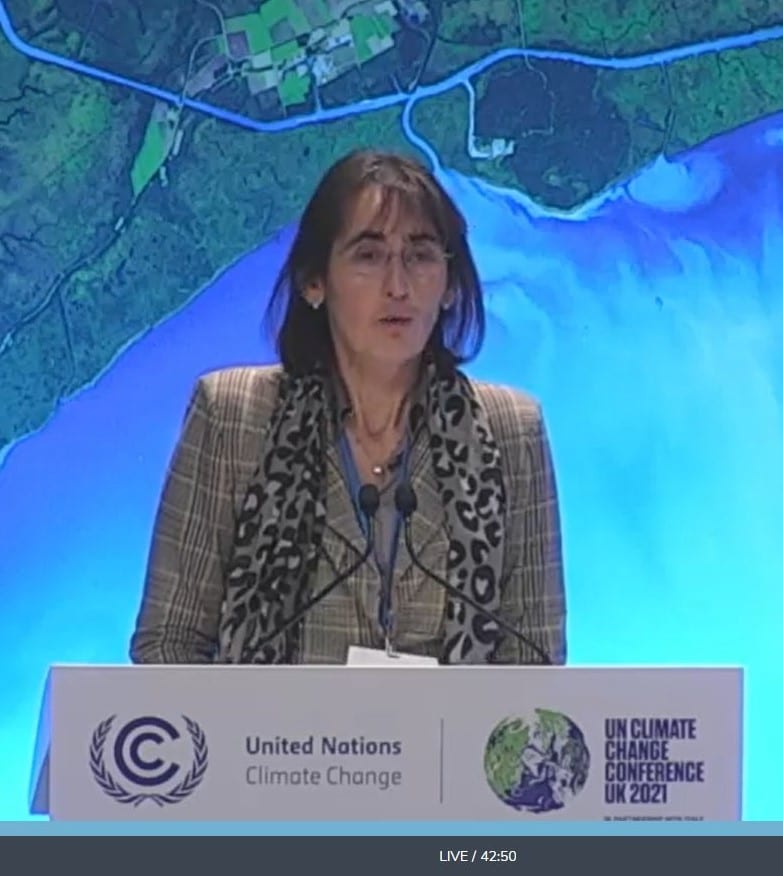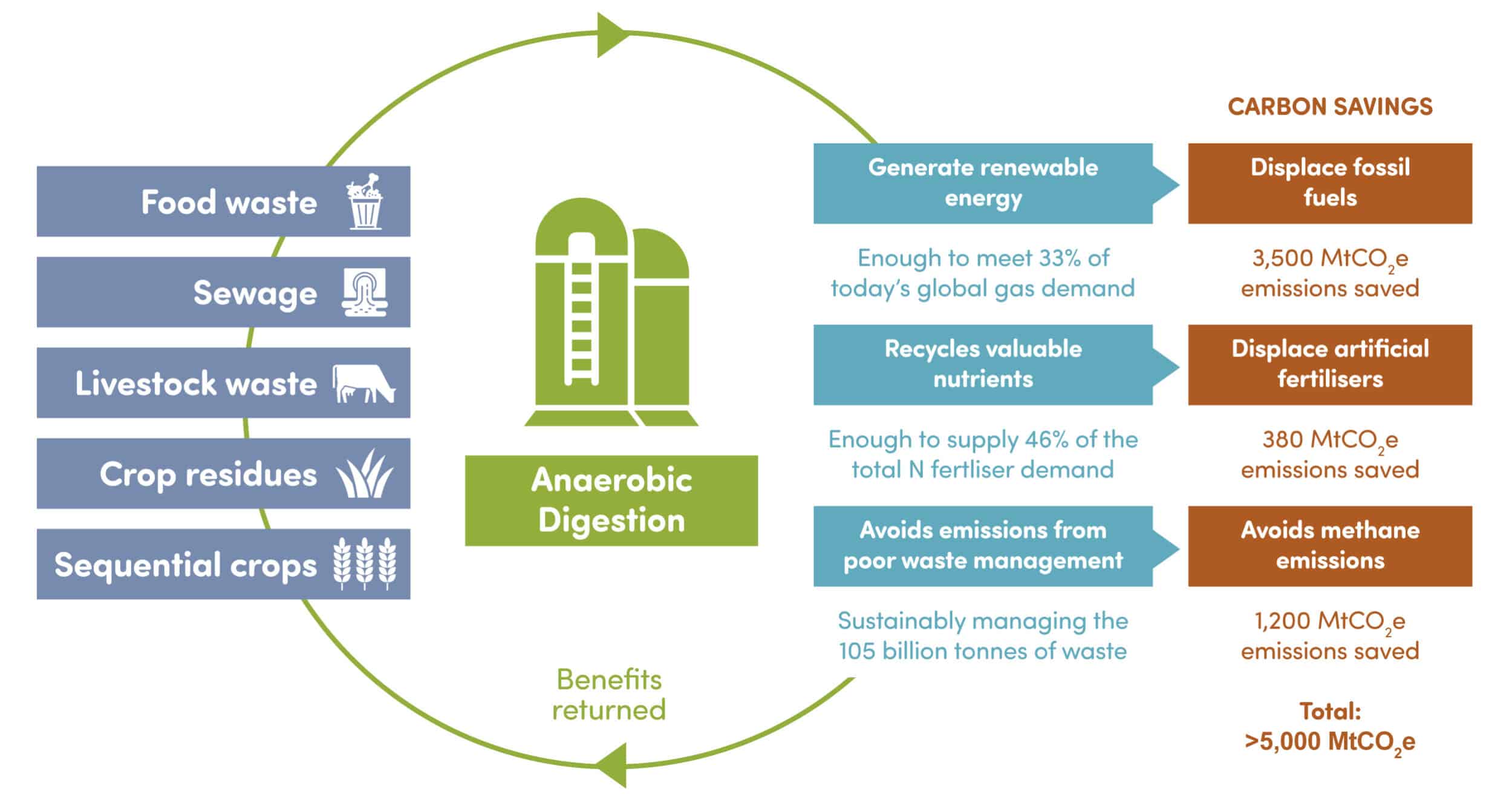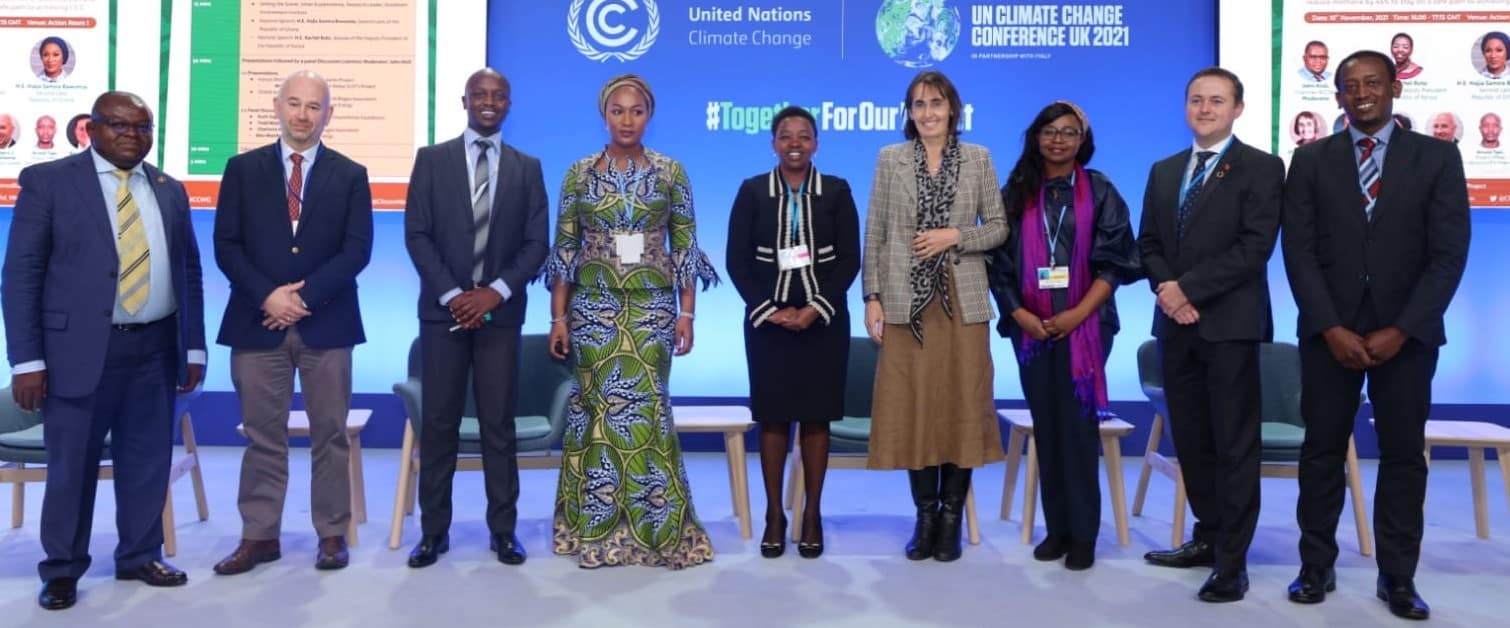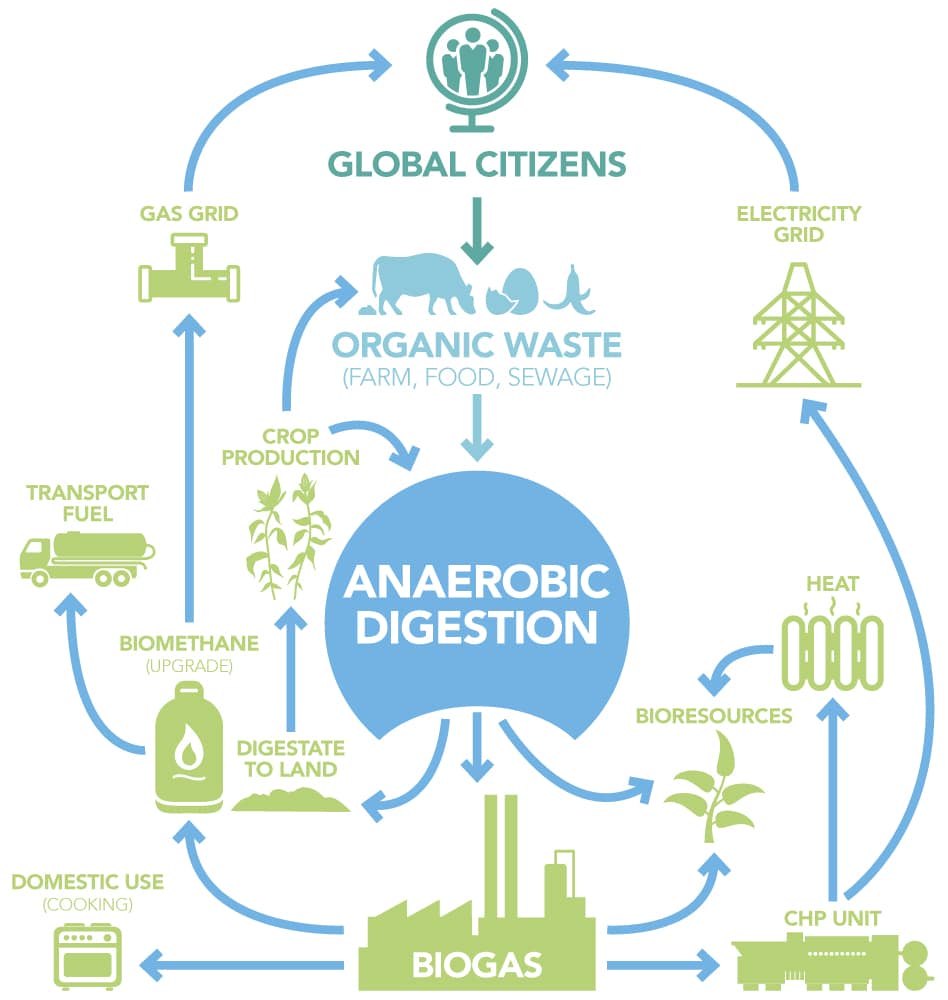“It is critical that we usher in a new era of waste management to reduce methane emissions” – global biogas trade body tells COP26 delegates
- The World Biogas Association calls for a change to waste management practice at COP26 Blue Zone event hosted in partnership with the Kenya Climate Change Working Group
- Only 2% of the 105bn tonnes of organic wastes generated annually by human activity is currently treated through anaerobic digestion (AD) and transformed into valuable bioresources such as biogas, biofertilisers and bioCO2 to decarbonise carbon intensive sectors such as heat, transport and agriculture.
- Fully deployed, AD could deliver 50% of the Global Methane Pledge now joined by over 100 countries
- The debate raised the issue of financing the solutions to climate change, including the deployment of AD to its full climate change mitigation potential
- Full event recording now available
The World Biogas Association (WBA) reiterated its key message to a full house of COP26 delegates at a session held in partnership with the Kenya Climate Change Working Group. The session took place in the exclusive Blue Zone of the global climate event in Glasgow earlier this month.

Charlotte Morton, WBA Chief Executive, said in her speech: “Organic wastes from food production, food waste itself, farming, landfill and wastewater treatment are responsible for about 25% of global methane emissions caused by human activity. However, today only 2% of these are treated and recycled [through anaerobic digestion], which means that 98% are [still] emitting methane (see Fig 1). It is therefore critical that we usher in a new era of waste management. We haven’t changed how we treat our waste for millennia. We either burn or bury it. That must change.”

Earlier in the meeting, Dr Johan C.I. Kuylenstierna, Research Leader at the Stockholm Environment Institute, had explained how “reducing methane is the single most important thing we can do to protect ourselves from climate change in the near term. Methane is responsible for about 30% of warming and has a life of about 12 years in the atmosphere.” Over that lifetime, methane (CH4) is 86 times more harmful than CO2 , – which is why over 100 countries have now signed up to the Global Methane Pledge committing them to reducing their emissions by 30% from 2020 levels by 2030.
By treating organic wastes, anaerobic digestion (AD) captures the CH4 they emit whilst transforming them into biogas, biofertilisers and other valuable bio-products that help decarbonise carbon-intensive industries such as heat, transport and agriculture. Global human activity generates 105bn tonnes of organic wastes annually – of which, as highlighted by Charlotte Morton, only 2% is being recycled through AD. “AD could deliver around 50% of the Global Methane Pledge targets and offers a circular solution that acts as a catalyst for circular economies across multiple sectors. (see Fig. 2).
“When waste becomes a resource, you start to see very little waste.“, she pointed out.

The health impact on populations, and especially women, of climate change and short-lived climate pollutants (SLCPs) such as methane and black carbon was vividly illustrated in keynote speeches by the Second Lady of the Republic of Ghana, H.E. Hajia Samira Bawumia, and the Second Lady of the Republic of Kenya, H.E. Rachel Ruto. Among other speakers, Arnold Kipchumba of the Kenya SLCP project, shared the startling 2021 World Health Organisation statistic that “4 million people die prematurely with SLCP-related illnesses and household air pollution“, with rural communities in Africa being particularly affected.
In his presentation, Alex Marshall, Director at Clarke Energy, showcased success stories from the biogas sector and highlighted that the company is already contributing to the avoidance of an estimated 17 to 20m tonnes of CH4emissions globally every year.
In the concluding Q&A session and remarks, the discussion moved to the issue of creating a viable economic model for AD to fulfill its environmental potential. Whilst the technological solutions have been identified, “we need to find the solution to paying for what needs to happen.“, concluded the event’s chair John Kioli, Chairman of the Kenya Climate Change Working Group.
Not only is it all about methane, it is also all about finance.
Watch the full event recording
– ENDS –
For further information:
Jocelyne Bia, Senior Communications Consultant
jbia@worldbiogasassociation.org ; +44 (0)20 3176 0592
Notes to editors:
- Speakers group photo:

left to right:
John Kioli, Chairman, Kenya Climate Change Working Group ; Dr Johan C.I. Kuylenstierna, Stockholm Environmental Institute; Arnold Kipchumba, Kenya SLCP’s Project ; H.E. Hajia Samira Bawumia, Second Lady, Republic of Ghana ; H.E. Rachel Ruto, Second Lady, Republic of Kenya ; Charlotte Morton, World Biogas Association; Ruth Sego, ClimateWorks Foundation; Alex Marshall, Clarke Energy ; Tedd Moyo, Oxford Fellow. - How AD works

- Launched at COP22 in Marrakesh in 2016, the World Biogas Association is the global trade association for the biogas, landfill gas and anaerobic digestion (AD) sectors, and is dedicated to facilitating the recycling of all organic wastes, crop residues and break crops through biogas globally. It believes that the global adoption of biogas technologies is a multi-faceted opportunity to produce clean, renewable energy, bioCO2 and natural fertilisers while resolving global issues related to development, public health and economic growth.
- The WBA report Biogas: Pathways to 2030 published in 2021 makes clear recommendations on how to deploy AD around the world, providing governments with a toolkit of measures that will enable the biogas industry to deliver carbon savings and cut the current shortfall identified by the UN in the capacity of Nationally Determined Contributions (NDCs) to meet Paris Agreement targets by over a quarter. Read the report here


